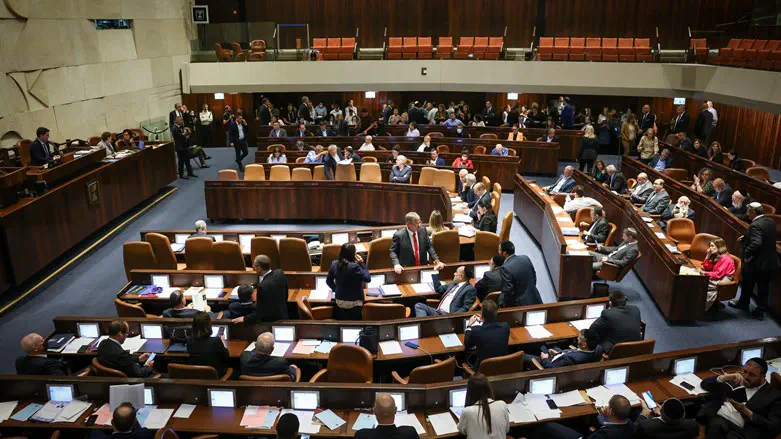
While the government fails to pass legislation, the opposition scored a success of its own this week when a bill submitted by opposition MKs to raise the minimum wage passed in its preliminary reading, despite the best efforts of Justice Minister Gideon Sa'ar to enforce coalition discipline and persuade government MKs to vote the bill down.
The bill was the initiative of MKs Osama Saadi and Ahmad Tibi of the Joint List, and incorporated additions from MKs Na'ama Lazimi (Labor) and Orly Levy-Abekasis (Likud). It includes the proposal to raise the minimum wage to 40 shekels per hour or a monthly salary of 7,440 shekels.
The bill now moves to the Knesset Committee where members will decide which committee will prepare the legislation for its first reading in the Knesset plenum.
Within the coalition, the Ra'am (United Arab List) party broke ranks and voted in favor of the bill, while left-wing members from Labor and Meretz, who have always supported such proposals in the past, left the plenum in order to avoid having to vote against.
Sa'ar was reportedly furious and demanded that the heads of coalition parties force their members to toe the line - to no avail.
Following the vote, the Labor party issued a statement saying, "We are delighted that together with the coalition leadership, we reached an agreement that this bill would be allowed to pass while maintaining the integrity of the coalition. The Labor party continues to lead on raising the minimum wage and improving conditions for employees, while preserving coalition discipline via agreements reached."
Prior to the vote, MK Lazimi expressed her party's dilemma and solution, saying, "This bill is going to pass because we in the Labor party are going to leave the plenum [during voting], in order to maintain coalition discipline and also to ensure that the law passes. Although it pains me not to be able to vote in favor, I know that this is the right thing to do, both for the integrity of the coalition and for our workers who live in poverty."
Speaking on behalf of the government, Yamina MK Abir Kara said, "Raising the minimum wage in the manner you propose will only harm the weakest members of society, spark rising inflation, and cause prices to rise in general. Raising the minimum wage has harmful consequences for the economy. In the developed world, whose countries we seek to emulate, the basic principle is that where there are labor unions, there's no state, but only deals between employers and employees. You should be working to increase competition, but instead you're just acting like lobbyists for increasing the cost of living. If people lose their jobs and are forced out of the labor market, it will be because of this proposal," he concluded.
